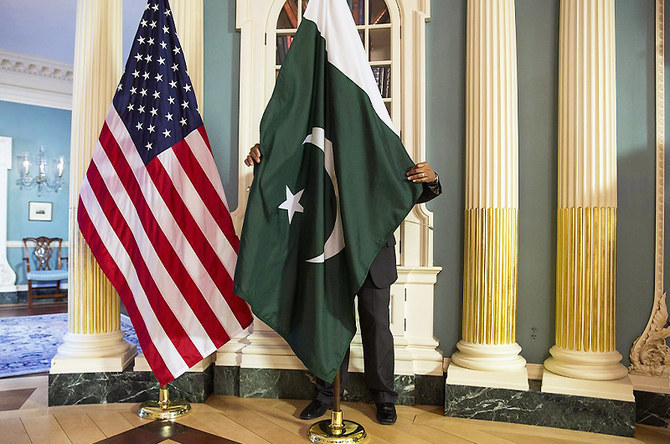The process of the withdrawal of American and NATO troops from Afghanistan has started rapidly and continues without interruption. One significant point in this process is the evacuation of the large American base in Kandahar province, located in the south of Afghanistan. This area has witnessed numerous movements. Recently, the Washington Post reported, “For months, we have witnessed a fluctuating battle against the Taliban in the outskirts of Kandahar city. Kandahar is the second-largest city in Afghanistan and holds strategic and symbolic value. This province once housed one of the most active NATO bases in the country, has a long and porous border with Pakistan, and is where the Taliban first officially mobilized their forces.
The fact that only three weeks after the official start of the troop withdrawal process on May 1, approximately 20 percent of the program has been successfully completed is satisfactory for both the Pentagon and the Biden administration, as well as the United States’ allies in Europe. It seems that Washington and Brussels’ hidden concern about the possible problems with the Taliban for the withdrawing Western forces has decreased steadily. This has caused the American and NATO forces to express more confidence regarding future developments in Afghanistan. For example, NATO Secretary General Stoltenberg announced last week, during his meeting with French President Emmanuel Macron in Paris, the continued operation of coalition forces in Afghanistan (although in a modified form) after the completion of the withdrawal process. Notably, Germany had previously supported the plan to continue the presence of NATO forces in Afghanistan.
Despite occasional complaints and threats from the Taliban regarding the delay in implementing the withdrawal schedule (which was supposed to be completed on May 1, 2021, according to the Doha Agreement), it is known that Pakistan has persuaded the Taliban to change the withdrawal schedule of American soldiers and NATO to “cooperate.” In other words, Pakistan has tried to meet the West’s expectations for a safe and orderly exit and, in return, has demanded new expectations from them. There is an American proverb that says, in a transactional relationship, there is no free lunch. According to this saying, it is reasonable for the Pakistani side to demand a price from the Biden administration. In fact, the US-Pakistan relationship has historically been a series of “free lunches” that depended on the fulfillment of a series of conditions. Over time, this situation created a dialogue between these inseparable partners; a discourse based on “free lunch” and “price demand” to maintain and strengthen each other. Now, all the evidence points to this familiar pattern returning to the strained US-Pakistan relationship. This issue has caused concern for Kabul and New Delhi, and may also raise concerns for Beijing, Moscow, and Tehran.
Given this situation, the frequent visits of high-ranking British officers to Rawalpindi in recent months can be considered important. According to the late Princess Diana, who talked about the existence of “three people in one relationship” in an interview with the BBC, it can be said that England has always been behind the US-Pakistan relationship; a country that is always ready to be on stage but hides its head behind a trench. Especially when it comes to the relationship between Pakistan and Afghanistan, we see that the unresolved issues in the region are a legacy of Lord Curzon, a British figure. Therefore, in a situation where efforts to create reconciliation in Afghanistan have intensified, the role of Britain becomes important. Hence, it is not surprising that General Nicholas Patrick Carter, the Chief of Staff of the British Armed Forces, was present in the controversial meeting between General Qamar Javed Bajwa, the commander of the Pakistan Army, and Ashraf Ghani, the President of Afghanistan, which took place on May 10 in Kabul. (Furthermore, General Carter and General Bajwa met each other separately.) It is quite clear that since General Carter’s meeting with the Pakistan Army Chief of Staff in Rawalpindi in early March, London has been working hard to facilitate a meeting between Ghani and Bajwa in Kabul. General Carter receives special respect in Kabul and plays the role of a mediator well. Ghani later warmly mentioned General Carter’s presence in his May meeting with Bajwa at the presidential palace and said, “General Carter is our mutual friend. The history of our acquaintance goes back 10 years ago when he was in charge of ISAF forces in Kandahar. Sometimes, throughout history, certain people come together to solve a crisis.” In fact, the evidence suggests that Britain is secretly working behind the scenes to broker an agreement on the Durand Line (which is not recognized by Kabul) between the two sides. This issue is a British heritage and will remain problematic unless a new security agreement is reached.
The elites in Kabul mostly view General Carter’s actions positively because they know that the “Durand Line” issue is very important. If there is no bilateral understanding about it, it will continue to cast a shadow on the Afghanistan-Pakistan relationship and may prevent reaching a peace agreement in Afghanistan. Pakistan is also willing to host a meeting between Ashraf Ghani and Taliban leader Moulvi Hebatullah Akhundzada in a confidence-building move in the near future. Perhaps Kabul has also come to the understanding that the agreement on the “Durand Line” is the price that should be paid in exchange for good neighborly behavior.
Pakistan and its non-interference in Afghanistan’s internal affairs, especially its power display in the “Khyber” region, is a topic of concern. However, mediation from a colonial power like England may help build trust between Afghanistan and Pakistan. England has shown interest in actively participating in these issues. It is predicted that Britain will be involved in special forces operations in Afghanistan, alongside the United States, after the withdrawal of Western troops. It is noteworthy that post-Brexit England aims to play an active role in the United States’ Indo-Pacific strategy to contain China.
Considering future developments and the reorganization of forces, it is expected that British special operations forces will undergo changes in their approach, in line with their American counterparts. The British Ministry of Defense has identified China and Russia as the most significant threats to the UK in a document titled “Defense in the Age of Competition” presented to the House of Commons.
British special operations forces can be divided into two groups: the first group consists of the Special Air Service (SAS), the Special Sea Service (SBS), the Special Reconnaissance Regiment (SRR), and the Special Forces Support Group (SFSG), who are responsible for counterterrorism, hostage rescue, intelligence gathering, and direct action. The second group includes the “Royal Marines,” the “Parachute Regiment,” and the “18 Telecommunication Regiment.” All these units are overseen by the “Strategic Command,” which supervises joint and national missions, as well as overseas operations. Notably, General “Sir Patrick Nicholas Yardley Munnard Sanders,” commander of the British “Strategic Command,” visited Pakistan to meet with General Bajwa after General Carter’s visit.
The purpose of these visits was likely to plan future security operations in Afghanistan after the withdrawal of troops. The Pentagon acknowledges that Britain has expertise in special operations in Afghanistan and neighboring regions. Speculations have arisen about secret joint operations between the Pakistani and American armies in Pakistan’s tribal areas along the Afghan border, including attempts to establish military bases. However, Pakistan’s Foreign Minister Shah Mehmood Qureshi has stated that Pakistan will not permit the presence of soldiers or the establishment of military bases on its territory. The Pentagon has expressed that it is examining options to arrange access and provide the necessary bases and airspace to counter terrorist threats.
Qureshi’s recent trip to the United States is significant, coinciding with an extraordinary meeting of the US House of Representatives Foreign Relations Committee on “Afghanistan-US relations after the military withdrawal.” Zalmi Khalilzad, the US special representative for Afghanistan affairs, initiated the meeting, and it was his first appearance before Congress. The meeting underscored Pakistan’s vital role in facilitating the Taliban’s peaceful entry into Afghan politics, ensuring stability in Afghanistan, and countering terrorist threats. Khalilzad dismissed predictions of a civil war or impending chaos in Afghanistan, emphasizing that there will only be a change in the nature of interaction with the country. Combat forces will not be part of future interactions, but significant assistance will be provided. Khalilzad also mentioned the possibility of motivating or imposing costs on the Taliban in the event of failure.
Afghanistan’s chessboard reveals itself. The Indian government is heavily involved in the spread of the coronavirus. The main topic of Jaishankar’s talks with the American side was related to the preparation of the vaccine. On the other hand, India is experiencing a tense border situation with China and the relationship between the two countries has deteriorated. New Delhi has expanded its relationships with countries around the world that are concerned about China’s growing power – such as the United States, the United Kingdom, the European Union, and the Quadrilateral Security Negotiations Group – and has made this a centerpiece of its foreign policy. It is important to note that it is highly unlikely for New Delhi to take any action that would weaken the American strategy in Afghanistan, particularly in its “Indo-Pacific” dimension. During last week’s congressional hearing, when representatives reminded Khalilzad that Bagram was the only American base on the Chinese border, he assured them that the United States had the ability to return to Bagram quickly. He advised the representatives to consult with the Pentagon regarding this matter.
Source: Eastern Strategic Studies Institute (iess)

